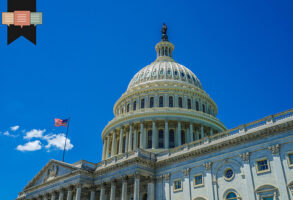
Published February 24, 2021
Generating much attention of late has been the re-introduction of the Equality Act under President Biden. Aiming to amend the 1964 Civil Rights Act to cover gender identity and sexual orientation, it is the game-set-match of the Sexual Revolution’s conquest. Biden—showing that his professed desire to govern from the middle was an electoral con—is using the political capital of his first one hundred days in office to etch the key tenets of the revolution into every corner of society, under the guise of purported “non-discrimination.” All told, it is a new orthodoxy—with a zealous plan for conversion and the installment of new blasphemy laws.
The problem with the Equality Act does not lie predominantly in the statutory language of the bill, but in its long-term effects, further transforming the moral imagination from anything resembling a Christian social order. The Equality Act, in my view, is a symbol for the de-conversion of the West.
We see this de-conversion on at least two horizons. First, we see it in the type of moral reasoning behind the bill itself. It is a bill of aesthetics and emotion instead of reason and principle. The Equality Act would have you believe Americans relish any opportunity to discriminate. That’s false. Second, by undoing the very ontology of womanhood, the core logic of the bill contradicts key tenets of progressivism’s own advances, such as feminism. How the Equality Act can move forward with so little resistance is only understood in light of the guiding ethic of today’s progressivism. Anything that fails to rise above solipsistic phrases like “live your truth” and “you do you” cannot impede such philosophically absurd bills.
The Equality Act contains a metaphysical revolution in its pages, and it seeks the evangelization of the West. The old order was one with an ethic of objectivity, reason, fixed nature, authority, and boundaries, where organic connections and family relations were seen as guiding, normative, and persuasive, with anything opposed to these as transgressive. The revolution well underway is to make all of these metaphysical fixities not only wrong, but harmful. Thus, in the Equality Act’s telling, anything that does not champion expressive individualism or limitlessness, or derive its existence by government fiat is, well, oppressive. We are witnessing, in real time, the final displacement of a Christian account of the universe by a wholly secularized one.
The Equality Act is an assault on the Christian imagination, and this is where its long-term consequences are most dire and calamitous. It aims to reconfigure not only the foundation of family life and biological connections to gender, but to catechize, inculcating a different way of conceiving one’s place and orientation to the world. Moral imaginations are guided by normative constraints, which give them definition and direction. Ideally, a human imagination ought to comport with what is good, true, and beautiful. To educate the moral imagination is to seek a shared imagination, rooted in a shared account of the world, and therefore binding and persuasive to all of the citizens beholden to it.
Such norming norms are found within the Christian cultural framework. It creates a metaphysical order that demands compliance by all. It offers an account of human flourishing and the common good. However, the so-called Equality Act now being proposed in Congress seeks to belie all such order by completely overturning its most basic definitions. Whereas the Christian metaphysical order upholds creational boundaries as instituted by God and enshrined in the natural world, the Equality Act promotes the metaphysic of sexual autonomy and expressive individualism as the highest goods of society. So good are they, in fact, that they must be upheld in law to protect them from prosecutorial examination. The self is the sole lens of reference for all moral guidance, making the tenets of natural law and divine revelation moot, mere objects of religious fascination rather than universal appreciation.
Such a double helix of the Sexual Revolution and the rise of the “Me Generation”—in the words of Tom Wolfe—conduces toward sexuality as personhood instead of an understanding of personhood that presupposes one’s sexuality as a quality among others, sovereignly established by God. Family, sexuality, and gender are products of our social imaginary, and if that imaginary is no longer defined principally by boundaries, the bare lineaments of the Christian metaphysical order are being jettisoned.
Our society is not only post-Christian; it is fundamentally neo-pagan. A 21st-century believer’s response to the culture is more akin to the defiance of the early Church against the revelry of imperial Rome than anything else. The Equality Act, then, is not an extremity of the most radicalized fringes of the Democratic Party; it is a corollary from the overturning of design and dignity as prescribed in Eden in which the Western world has participated, over the last decade in a rapidly increasing rate.
Norms shape laws, and laws either encourage or discourage other norms taking their place. To deny the expediency of Obergefell in bringing the Equality Act to a place of even remote legislative plausibility would be myopic. Because law is pedagogical, its capacity to reshape the collective conscience of a nation means its contents must be scrutinized by those most responsible for its ratification. According to Thomas Aquinas, law is an ordinance of reason communicated by one who has authority to care for the common good. For the architects of the Equality Act, law is a result of raw will. The supposed reasonableness behind the Christian worldview is rendered unreasonable since it does not submit itself to the hegemony of pure volition found within the tumult of the modern self. But history vindicates the stability of the Christian metaphysical order, as it far outlasted the decline of the decadence of Rome and constructed the core of Western civilization in its wake.
Thus, I possess a long-term optimism even though, in these tides surrounding the Equality Act, I confess a short-term pessimism. My optimism is bolstered by the notion that no society can march against nature without nature eventually striking back. Legislative jargon cannot suffocate the order enshrined within creation; at best, it can only obstruct its observation. In a sense, we are in the midst of a new Dark Age. And the uncertainty of Christ’s return makes us uneasy in Babylon. Despite that tension, thwarting creation at its own game never bodes well for the created. Already, many secularists are noticing the debilitating consequences of transgenderism, and the havoc it is wreaking upon our generation regarding identity and sexuality as a whole. It is as if they have noticed that swimming too far upstream, past the calm and orderly current, leads to infinitely more turbulent waters.
There cannot be order in society without the recognition of truths that make obtaining order possible, and there is no truth without which order flows. The Equality Act stands against these truths and promises the fulfillment of a progressive eschaton, relying on the urgency of the self for its scaffolding. My own ethical scaffolds are based on truths over thousands of years old. They have never had to cater to the spirit of the age, for they are grounded in the very strata of creation. They are oriented toward human flourishing, and I will cling to them at all costs so that the next generation might be preserved to see their communities endure in moral prosperity, as their Creator has always intended.
Andrew T. Walker is associate professor of Christian Ethics at The Southern Baptist Theological Seminary and a fellow with The Ethics and Public Policy Center.










